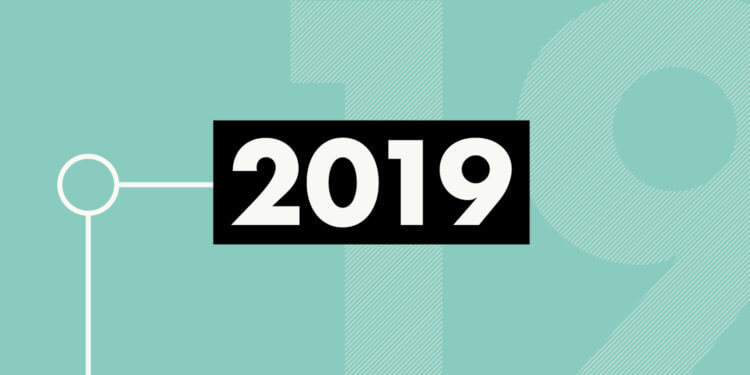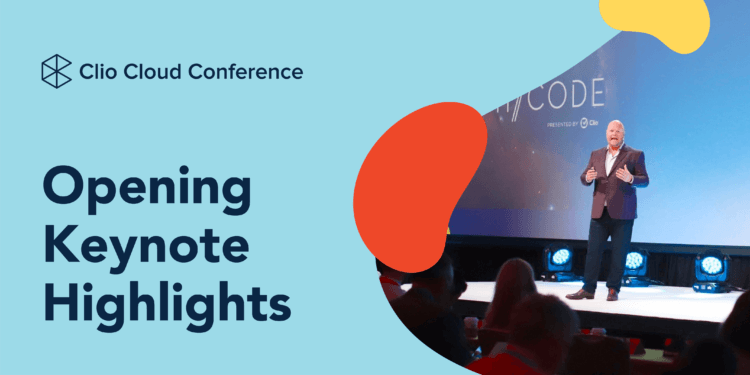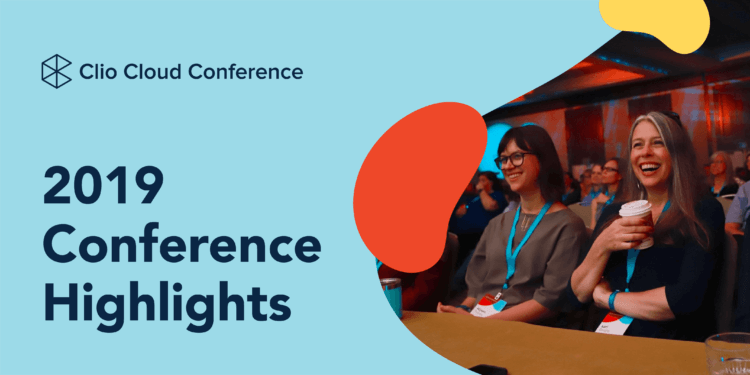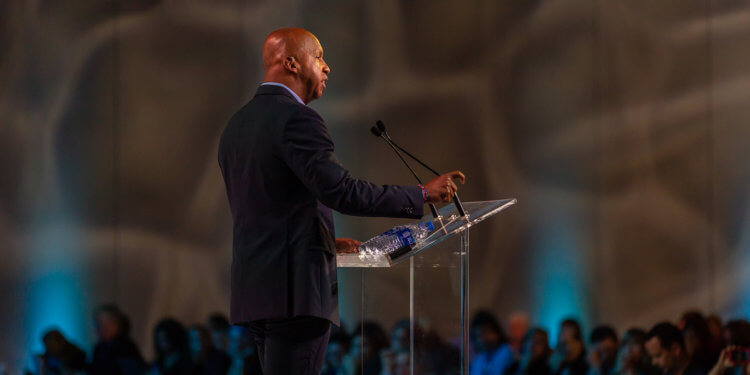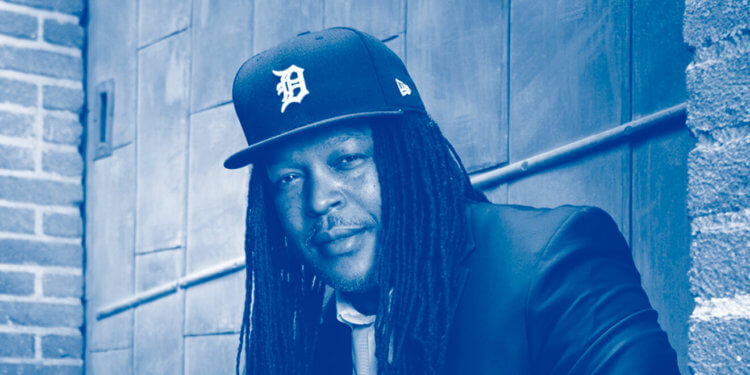
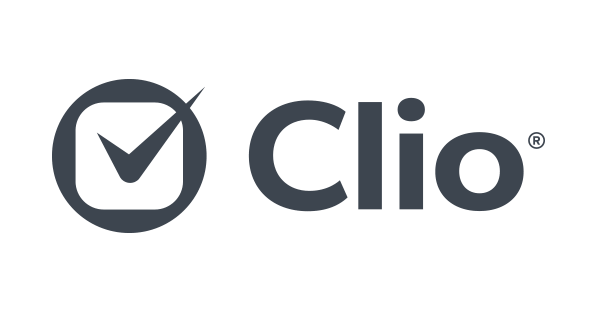
About the episode:
What role does trauma play in shaping us as human beings? How do the flaws in our criminal justice system harm vulnerable populations? And how can legal professionals shift their perspectives on justice reform in order to help improve the system?
Shaka Senghor, criminal justice reform advocate and 2019 Clio Cloud Conference keynote speaker, joins us for a candid discussion on his personal story of redemption, the trauma of gun violence, and what legal professionals can do to start changing the conversation.
Our Guests:

Shaka Senghor
Shaka Senghor is the President and Creative Director of Shaka Senghor, Inc. His memoir, Writing My Wrongs: Life, Death and Redemption in an American Prison, debuted on The New York Times and The Washington Post’s best-seller lists. He is the recipient of numerous prestigious awards, and one of the Oprah Winfrey Network’s “Soul Igniters” in the inaugural class of Oprah’s SuperSoul 100. You can follow him on Twitter at @ShakaSenghor.
Host bios:

Teresa Matich
Teresa Matich is the Content Strategist at Clio, where she’s responsible for educating the legal industry on market trends, best practices, and important issues impacting law firms. In her spare time, she enjoys traveling, snowboarding, and traveling to snowboard. Email her at [email protected] or tweet her at @TeresaMatich.

Andrew Booth
Andrew Booth is the technical producer for Matters, and works within the Business Operations department at Clio as the Learning Media Specialist. He is best known as the voice (and sometimes face) of Clio’s training videos. Andrew received his Broadcast Communications degree from BCIT, and has produced work for such broadcasting outlets as Global News and Roundhouse Radio. Email him at [email protected].

Derek Bolen
Derek Bolen is the Senior Manager of Customer Marketing at Clio, which means he gets paid to build relationships with the greatest customers in the world. When he isn’t working, he’s tweeting, reading, writing, podcasting, running, obsessing over fantasy football, or hanging out with his 5 year old son. Email him at [email protected], or tweet him at @hurrrdurrr.

Sam Rosenthal
Sam Rosenthal is a Content Strategist for Clio, specializing in thought leadership and creative content. A graduate of UNC-Chapel Hill’s journalism program, Sam works on literary fiction and screenwriting projects in his spare time. Email him at [email protected], or tweet him at @SamRoseWrites.
Show notes:
- Introduction: Matters producer Teresa Matich introduces Shaka Senghor, and some of the key topics to be discussed during the episode.
- Shaka describes some of his formative experiences, what his youth was like in Detroit, and why gun violence prevention is so important to him.
- Shaka talks about the realities of prison life and the people who are incarcerated—and how those realities differ from public perceptions.
- Shaka emphasizes why it’s so important for people who have witnessed the criminal justice system from the inside to be involved in criminal justice reform.
- Shaka delves into the things that drive him to do the work that he does.
- Shaka highlights the ways that lawyers can be better advocates for their clients, and for justice reform.
Shaka talks about the changes he’s seen in the justice system in the past five years—and what he wants to see in the future. - Closing
Read full transcript
Read full transcript
Teresa: What role does trauma play in shaping us as human beings? How do the flaws in our criminal justice system harm vulnerable populations? And how can legal professionals shift their perspectives on justice reform in order to help improve the system?
I’m Teresa Matich, and this is Matters.
Matters is a podcast presented by Clio, the world’s leading cloud-based legal technology provider, where we look at small changes that can make a big impact on lawyers’ daily lives and practices.
In this episode and several episodes to follow, we’re bringing you the one-on-one interviews we conducted at the 2019 Clio Cloud Conference, which took place in San Diego. These conversations will feature the conference’s keynote speakers, as well as some of the legal experts and industry innovators who attended and shared their insights on pressing industry issues.
These interview-style episodes will give you a sense of the excitement and thought leadership found at the Clio Cloud Conference, more importantly, they will give you a front-row seat to conversations with true change-makers who have thought-provoking, inspiring, and meaningful stories to share.
This episode is the first of a two-part series on criminal justice reform, and why it matters.
At the conference, I interviewed Shaka Senghor, the President and Creative Director of Shaka Senghor, Inc., about his firsthand experiences with the American criminal justice system, his work to shift societal narratives, and what lawyers and legal professionals can do to start changing the conversation.
Shaka: Yeah. My name is Shaka Senghor. I am the author of Writing My Wrongs: Life, Death and Redemption in an American Prison and I’m a content creator. I do a lot of work in the social impact space, specifically around criminal justice.
Teresa: Amazing. One thing that you say on your website is that, “Hurt people hurt people.”
Shaka: Yeah.
Teresa: What do you mean by that?
Shaka: I mean, when you think about the level of trauma that people experience in life, typically it has to manifest in some way, and oftentimes it manifests in them hurting or traumatizing other people.
I do a lot of work in the space of gun violence prevention and what I’ve found—in my experience of being formally incarcerated as well as being somebody who was shot at an early age—is that a lot of people who end up in prison or end up committing acts of violence were actually victims of violence before they were ever perpetrators.
Teresa: Yeah. That was your experience as well. You talk about how you probably most likely did have some form of PTSD that just went untreated because nobody asked you how you were feeling at the time.
Shaka: Yeah, absolutely. I’ve gone through a lot of traumatic experiences, but specifically I was shot when I was 17 years old and never received any treatment or an invitation to get treatment. That had a dramatic impact on my life in the sense that I began to carry a gun every day, and eventually I used that gun and caused another man’s death based on my actions.
It’s just that cycle of violence can definitely be disrupted if we start ensuring that people get the type of care that they need when they’ve been through a traumatic experience.
Teresa: And how big of a factor do you think that gap is right now in the cycle of violence that you’re talking about?
Shaka: I think it’s an enormous gap. I grew up in the city of Detroit, which has grappled with gun violence for a very long time; [the] neighboring city Chicago, same issue. South Central LA. You know, a lot of inner cities [like] Compton and these cities where there’s a high level of gun violence.
You have kids who live in a very traumatic environment, and yet they’re supposed to go to school and perform like kids who don’t have to deal with the same level of trauma. We just don’t acknowledge that. We acknowledge it when it’s mass shootings, but we don’t acknowledge it when it’s like multiple shootings in inner cities, and I think it’s important for us to have that conversation about PTSD in the inner city.
Teresa: Amazing. Part of your story involves a prison experience: When you tell people about that, what misconceptions do they have? What surprises them when you tell them about your experience?
Shaka: I think what surprises a lot of people when I talk about prison and my prison experience is that they’re shocked by who’s actually in prison. Like the level of genius, the level of intelligence and creativity. And what they often don’t really understand is that people land in prison for a variety of reasons that don’t always necessarily include them being bad people. Our judicial system is really terrible in the sense that justice isn’t administered to people who are poor, who come from environments with limited resources. We’ve over-criminalized a lot of things. We’re starting to see some shifts with that.
Like in the marijuana industry, where now people are making a lot of money off things that people went to prison for a lot of time for. So I think people are shocked when they realize that the idea of the scary con is really a con in itself.
People have been sold on this idea of punishment, punishment, punishment, fear, fear, fear—but I’ve taken a lot of people inside prison and they’re always shocked at the men and women that they meet inside. Once they start to hear the stories and the back stories and the trauma that people have been through, it really awakens something in them.
As Bryan Stevenson always talks about: you bring people in proximity to the issue, your perspective is never the same. So I try to bring as many people in proximity to it as possible.
Teresa: Absolutely. And even when things are very, very proven, you talked about solitary confinement: There have been studies on the mental effects of that and how it’s a barbaric and even torturous practice, and yet it’s still widely used in the prison system today. Why do you think that persists?
Shaka: I think it exists because it affects primarily black and brown bodies, and I think the reality is that in this country we struggle with being honest about that. It’s in no way remotely possible that the system would look the way that it looks if it was in fact then primarily white people, right? So we have to just deal with that and we have to do it with a historical aspect of it.
The Thirteenth Amendment created a space for the re-enslavement of people who were emancipated by President Abraham Lincoln, right? And you read the Thirteenth Amendment or watch the film, 13th, which I highly recommend that everybody watches by Ava DuVernay—it shows the connectivity between the Thirteenth Amendment and the current model of mass incarceration.
So because it’s primarily affecting black and brown bodies from poor communities, it’s ignored because we’ve been dehumanized in such a way that it doesn’t create broader empathy or compassion on a systemic level.
On a personal level, I know a bunch of incredible adult white people who go inside prisons and do incredible work and who lead great organizations to shift that, but systemically—because that’s been the narrative for so long—we haven’t dealt with it.
And another part is we don’t deal with mental health in America in a way that honors the people who are dealing with mental health issues, right?
When you think about who’s in solitary confinement, the majority of people that I was around had real mental health diagnoses—and because the prison isn’t equipped to deal with it through that lens, people end up in solitary confinement, because that’s the only way that the prison feels that they can control, as opposed to help, people. So that’s really problematic and something that I wish we were paying more attention to.
Teresa: Absolutely. And you talk about we haven’t dealt with it, but you have tried to change that narrative and deal with it.
In the foreword of your book, you talk about how there was an MIT group that came into your community—they had all these big plans and you stood up in that meeting and said, “This is this missionary mentality, but you’re not here to really solve these problems. If you really want to solve these problems, you have to engage with our community.” So, what inspired you to stand up and do that? Have you always had that drive to push people to change narratives?
Shaka: I think it kind of came from my own experience of being in prison and constantly being told that the likelihood of me getting out was nonexistent, and if I did get out I would be right back. And knowing that wasn’t the pathway that I was going to choose for myself, but also knowing that I had a skillset that would allow me to figure out a way to create a life for myself.
So having gone through that, I realized that people create narratives that don’t belong to them and they love to take control of people’s stories that they haven’t even been given permission to take control of.
And that’s kind of what was happening with Detroit—where at one point we had all these people converging on the city and saying, “Oh my god, the city is in ruins and if we just put a garden here.” And I’m like, “If you go in the community, you’ll realize there are people that have been been gardening here forever, and that there’s been a sense of community for a very long time.” And until you actually come in contact with the people in the community, you have no permission or no right to actually come in and try to fix something when you don’t know what needs to be fixed in the first place.
I think that the same thing when it comes to criminal justice. You can’t talk about solving criminal justice issues without including the people who have been impacted by those issues.
So there are organizations that have been created like Just Leadership, that is primarily run by system-impacted people and led by system-impacted people and it was created by a system-impacted person who has done incredible work to make sure that we’re at the table.
There’s Anti-Recidivism Coalition in LA. It was founded by Scott Budnick, who’s a film producer, but he ensured that he created space for it to be led by somebody who was system impacted—and that work is playing out now with Sam Lewis, who was in prison for like 24 years. Now, he’s leading one of the most comprehensive organizations on re-entry in the nation, if not in the world.
And when you have courageous people making those decisions, that’s what it means to be an ally. When you have the Scott Budnick’s of the world, or you have Glenn Martin’s of the world, who was also system impacted, but created space for the system-impacted people to lead. You change the narrative because now it’s coming from a very honest space because it’s lived experience. Who better to talk about what solitary confinement is than somebody who’s actually been in it, and who really understands the impact because I’ve been impacted by it.
In that way, I think the more we have people who have been through things speaking for themselves, the better the world becomes.
Teresa: Absolutely, because when you try to take control of someone else’s narrative, as you say, there are inevitably going to be gaps.
Shaka: Absolutely.
Teresa: You don’t know what they’ve been through, so how would you be able to tell that story?
What does a better solution look like to you? And I know that’s a huge question, but even if there are minor changes or things that you would like to see or see more investment in?
Shaka: I think in the most ideal world, we would eradicate the need for prisons to exist in the first place, right? In the realistic world that we live in, I think if we can start the very moment that a person encounters the judicial system in whatever capacity, if we can start with the intentions of helping this person reach the best outcomes possible for their life, I think that changes how we see things.
I went to visit a prison in Germany and from the moment a person is arrested, they’re working to help this person return to the community healthy and whole, and I think that’s a model that can be replicated here in America, but it takes a great deal of courage. It takes a great deal of honesty to say, “Hey, here’s the thing that we got really, really wrong.” But if we’re willing to acknowledge that, then you can actually proceed to the next step which is to make things right.
Teresa: Incredible. I talked to Deanna earlier about the power and importance of creation and work. How’s that been for you, because you’ve had all sorts of outlets and jobs and been very, very successful in recent years.
Shaka: Well, the craziest and wild thing about it is that I’ve created all of those opportunities by just showing up in the world the way that I do. I’ve never been employed through a traditional route of, like, putting in an application or sending over a resume. It’s literally just been by how I chose to show up in the world. I’m fortunate. I went to prison, I was highly literate, and I enhanced my literacy by reading a lot and learning a lot—but also I hustled in the streets, so I grew up hustling. Those are transferable skills.
All of the marketing I’ve done around my books, I learned that from marketing crack. My ability to network is based on me moving around in my city from the time I was a kid. When my parents divorced, they were back and forth and moving to different neighborhoods, so I learned how to make friends relatively easy by being open to just meeting new people. All those things are transferable skills that I’ve been able to apply to my life.
And then, of course, being creative. I’m inspired by hip hop. To me I think hip hop has been the greatest gift to people who come from the hood in the sense that it’s helped us think about entrepreneurship and enterprise and ownership and things like that. So I take a lot of my cues from hip hop artists, you know? The Nas’s of the world and people who inspired me deeply through their creativity and their vision for their own lives. T, I was just talking to him and you think about how these are guys who come from the hood backgrounds. They took all the things they learned in the street. They applied them to art, and they were able to create a life for themselves and their families.
I just kind of do the same thing as an artist. In terms of social impact, my real friends are in prison, so I’m fighting for not just the largest changes, but also want to see my friends get home to their families. I want to ensure that they don’t die in prison if there’s something that I can do about it. I’m just driven by those things.
Teresa: That makes a lot of sense. We’re at a conference for lawyers, so I also wanted to ask: In these communities, what is the biggest barrier to legal services and what can lawyers do to break that down?
Shaka: I think resources are the biggest barrier. I think about a lot of people who end up in prison, they end up getting public defenders who are under resourced, under funded. They don’t have all of the tools necessary to fight for their clients, and so they end up pleading them out. I think the rate of people who plead guilty over who actually go to trial is probably 85-90% of the people I know took pleas. You know, they pled out instead of going to trial because the prospect of going against a tight legal system when you have meager resources is daunting, and a lot of people are just like, “I don’t want to take that risk to end up with life, so I’ll take this one or two years,”—not understanding that just having a felony is a life sentence in itself, because our society is so restrictive and unwilling to bend when it comes to helping people re-enter society. I just think resources.
But also, proximity too. A lot of lawyers who are well intentioned and well meaning, they don’t come in proximity to their client until they’ve actually been retained or been forced by the system to defend them. It’s hard to fight for somebody’s life that you don’t understand, if you don’t understand their background. I think the more proximate lawyers can be to the communities that they serve, the better they can fight and advocate on behalf of their client.
Teresa: Does that mean visiting communities or—
Shaka: Hanging out in the hood, going to the barbecues. You know, baby showers, baptismals, whatever those things are. Just really spending time with people that come from the communities that they’re likely to be serving.
Teresa: Yeah. You talk about the power of connection a lot and connecting communities with places like MIT. So, how important has that been in making an impact in these areas?
Shaka: I think it’s, again, you think about my relationship with MIT Media Lab. MIT Media Lab, I was a director’s fellow. I’m still a director’s fellow, in the sense that that network created a different conversation at the lab that they, under normal circumstances, would have never been able to intersect with. So the former director there, Joi [Ito] who recently stepped down, he was just courageous in finding people who come from all these different backgrounds and bringing us into one space where we were able to intersect in a way that was ground breaking.
And a lot of us have gone on to do great work based on our relationship and connectivity to the lab, but the lab was also able to do great work based on their connectivity to us. I think it’s important for us to really just create spaces for people of dissimilar backgrounds to get together and figure out how to design a better world.
Teresa: Absolutely. What’s one thing that you’re most proud of with your work with the lab?
Shaka: One of the things I’m most proud of my work with the lab is I got nominated for a TED prize, became one of 20 finalists based on a project that I started at MIT Media Lab, and went on to teach at the University of Michigan. So that’s probably one of the prouder things. I had a wonderful conversation with Martha Minow at MIT Media Lab, and think she’s a Harvard Law School dean. That was one of my favorite conversations, because she’s sweet and super smart and was super gracious. I had a lot of fun at the Media Lab.
Teresa: That’s very cool.
What role do you think lawyers have to play in making the justice system better? Because we talk about, on a day-to-day basis, like engaging with communities more, but lawyers also have power to make judicial challenges and to change the way the system works.
Shaka: If more lawyers could beat up more prosecutors, we would be in great shape. No seriously, I think the prosecutors have so much more leverage than the criminal defense attorneys in terms of how they charge clients. So I think if we can even really think about a way to challenge how charges are meted out, I think that’s super important, right? Because we get so many prosecutors will stack all these ridiculous charges over one incident and then it forces people to plead now to a lesser charge, and I think until we can fix that part of the system, we’ll always have people taking these ridiculous pleas.
I’m like, if you get arrested and you ran down the street, then it’s like flee and elude, resisting an officer, all these different charges, and next thing you know you’re facing 100 years and then they’re like, “But if you just plead guilty to running down the street, then you’ll only do two years.” I think if we can really challenge the idea of how charges are stacked by prosecutors, I think that would be helpful for lawyers in a major way.
Teresa: Yeah. Absolutely. And what do you think about the perception of the system in the broader community? Because, as you said, when you take people to prisons, they have no idea that these are the type of people who are in prisons. I don’t think people know that the charge stacking you’re describing happens. How do you think we can get the message out there so that people are aware this is how the system is really working?
Shaka: Yeah. I think we just got to continue sharing stories of people who have been through it.
When I think about where we’re at with the criminal justice conversation now, five years ago we weren’t having this type of conversation. You know, now we’re like having this incredible bi-partisan conversation where both parties are actually agreeing that there’s something wrong with our system. We have wardens who are saying, “You know what? There’s a different way to do this.” And we’re going to add more programs. We have governors who are like, “You know what? These sentences are ridiculous. We need to bring an end to the death penalty and we need to stop killing people on tax payer dime.” So we’re getting some traction because of the storytelling that’s happened.
Now there’s any number of books on people who have got out of prison. Five years ago, it wasn’t that many. I think about the books about formerly incarcerated people that are by formerly incarcerated people. You know, five, 10 years ago there were only a couple that you could point to, you know? It was Malcolm X’s autobiography, Nathan [McCall], I always forget this brother’s name, but Makes Me Wanna Holler. It was just a few books about formerly incarcerated people that were actually by formerly incarcerated. Now it’s a whole canon of these books.
So being able to be at the front of that charge as a writer and as a storyteller, I’ve seen firsthand what narrative does to shift policy, humanization does to change legislation. I’ve watched it because I’ve been an integral part of helping shift it.
I think we’re on the right track. We just need to put these stories on steroids and get them out some more people.
Teresa: Absolutely. So looking forward, and hopefully sooner, but in five, 10, 20 years, in an ideal world, what does a better solution look like to you?
Shaka: In an ideal world, the prison population is dramatically decreased. I know we’ve been talking about cutting the prison population in half. I would actually see it reduced down to such an insignificant amount that we’re no longer talking about it as a form of torture or a cheap and free labor. That’s what happened in the most ideal world.
And in a close future, just to see more laws continue to get passed and more support around people who actually are getting out of prison. Make sure that they have all the things that they need when they come home.
Teresa: Yeah. And the mental health support being like—
Shaka: Absolutely. I think we just need to decriminalize mental health altogether.
Teresa: Decriminalize mental health. Can you tell me more about that?
Shaka: Yeah. I mean, you have people who are in prison because they were going through a psychotic episode and they may have commit what’s technically on books a crime—but is it really criminal if you’re operating out of a mental illness space that doesn’t allow you to function in a way that anybody else who doesn’t have mental illness will function in those situations? And I think decriminalizing that, removing the use of solitary confinement, which tends to enhance a military illness, I think those things go hand in hand.
So the more we can decriminalize mental illness, I think that will significantly reduce the prison population.
And that’s inclusive of people who have been addicted to drugs because of whatever traumas they’ve experienced in life. If we can decriminalize those things, I think that significantly reduces the prison population.
Teresa: Absolutely. That makes a lot of sense.
Just one final question I wanted to ask about: There’s something that both you and Deanna talked about, which is about not wanting to be defined by the worst moment in your life.
Shaka: Yeah, absolutely.
Teresa: And how that shows up in a lot of maybe seemingly micro ways, but that are actually incredibly impactful in someone’s life over the course of their entire life. Can you tell me more about that?
Shaka: Yeah. Here it is, I’m coming up on 10 years of being out of prison, and whenever I get ready to move to a different apartment or I have to go through this whole have you ever been convicted of a felony and I have to explain all the back story to who I am in order to convince owners to rent to me, right? I’m fortunate to be able to figure some things out and I got some good people that will vouch for me, but that’s not everybody’s reality, you know?
When it comes to employment, I’ve been self-employed in some capacity or a partner with companies or organizations that happen to know me through work that I started doing on my own and that changes the outcome. But under normal circumstances, I can’t just put in an application and get hired.
Shaka: So all these things, I can’t get TSA, but I pay taxes. So it’s a lot of things that happen where some people can’t vote, but they’re still forced to pay taxes. That is ridiculous in a country that talks about freedom. Taxation without representation. I think it’s unfair. In some cases, it’s more of an inconvenience, but in other people’s situations that’s devastating. If you can’t get housing, sometimes you can’t even go to a school and you may have children. So now you can’t go and be a chaperone because of your past, which means you can’t watch the important part of your child’s growth.
Shaka: It’s over 40,000 collateral consequences that happen with a felony, you know? And it shows up in different ways and it impacts the quality of people’s lives differently. And even with the level of success I reached, there’s still just the mental and emotional toll that that takes when you have to go through that process, you know? And it’s a lot of things, like even life insurance. You have to fill out the application to say, “Have you ever been convicted of a felony?” What does that have to do with my ability to pay my insurance for when I die? You know?
Teresa: Yeah.
Shaka: So it’s things like that that are super crazy.
Teresa: How does that feel for you?
Shaka: It feels terrible. It sucks, you know?
Teresa: Yeah. How can we improve the re-entry experience for more people? Because, as you say, you’re fortunate and it worked out, but for many people that’s not what happens.
Shaka: Yeah. I think that we can improve it by being really courageous and saying, “You know what? Once you’re out, your past is your past. You’ve moved on from that. Let’s start fresh.” Let us support you in starting fresh and really mean that, you know? And actually do it in a meaningful way.
Teresa: Absolutely. That’s wonderful. Thank you so much for joining me, Shaka.
Shaka: Oh, and thank you all so much for having me. I appreciate you.
Teresa: In our next episode, we’ll continue with Part Two of our conversation on criminal justice reform—featuring our interview with another 2019 Clio Cloud Conference keynote speaker, Deanna Van Buren.
Thank you for listening to Matters. For more episodes, visit our home page, clio.com/podcast. And don’t forget to subscribe to the podcast on iTunes or Spotify, so you never miss an episode.
Matters is produced by Andrew Booth, Sam Rosenthal, Teresa Matich, and Derek Bolen—and by Clio, the world’s leading cloud-based legal technology provider.
If you’d like to learn more about Clio, please visit us at Clio.com
